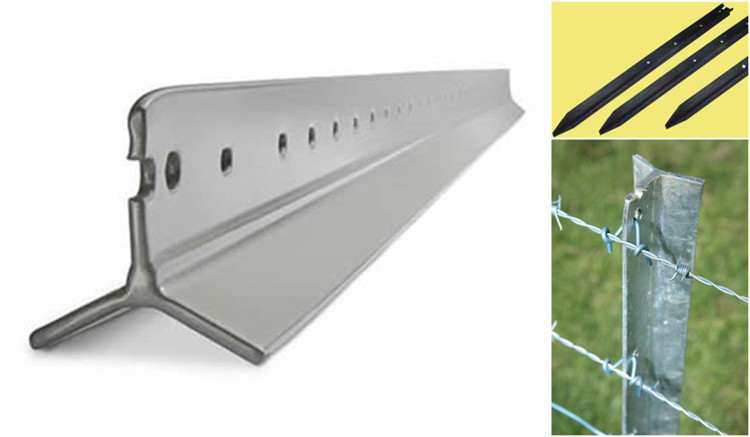Aug . 19, 2024 23:58 Back to list
Durable PVC Coated Gabion Boxes for Landscape and Erosion Control Solutions
The Versatility and Advantages of PVC Coated Gabion Boxes
In recent years, PVC coated gabion boxes have gained popularity in various civil engineering and landscaping applications. They serve as effective solutions for soil erosion control, retaining walls, and decorative landscaping features. These gabion boxes are made of wire mesh filled with stones or rock, providing both structural support and aesthetic appeal. The addition of PVC coating enhances their durability and functionality, making them a preferred choice for many projects.
Understanding Gabion Boxes
Gabion boxes are cages or containers made of welded or woven wire mesh. Traditionally, they were filled with natural stones or other materials to form structures that offer strength and stability. Used extensively in civil engineering, gabion boxes provide an environmentally friendly solution for various applications such as retaining walls, riverbank stabilization, and noise barriers. With the advancement in technology, PVC coated gabion boxes have emerged, further enhancing the performance of traditional gabion structures.
Advantages of PVC Coating
The primary benefit of PVC coated gabion boxes lies in their enhanced durability. The PVC coating protects the wire from corrosion, ensuring a longer lifespan even in harsh environmental conditions. Unlike untreated steel, which can deteriorate over time when exposed to moisture and air, the PVC coating acts as a barrier, significantly reducing the risk of rust and degradation. This makes PVC coated gabions an ideal choice for regions with high humidity or exposure to water, such as coastal areas.
Additionally, the PVC coating is available in multiple colors, allowing for design flexibility. This aesthetic feature makes gabion boxes not only functional but also visually appealing, contributing to the overall landscape design. Whether used in urban settings or natural environments, these gabion boxes can blend seamlessly with their surroundings.
pvc coated gabion box

Environmental Benefits
Another critical aspect of PVC coated gabion boxes is their environmentally friendly nature. The use of natural stones for filling minimizes the impact on the environment, as it reduces the need for concrete or other manufactured materials that have a higher carbon footprint. Furthermore, gabion structures promote vegetation growth by allowing water to permeate through the rocks, enabling plants to thrive. This natural process helps improve soil stability, enhances biodiversity, and contributes to better water management in the area.
Applications of PVC Coated Gabion Boxes
PVC coated gabion boxes are versatile and can be used in various applications. In civil engineering, they serve as effective solutions for controlling soil erosion, building retaining walls, and ensuring the stability of slopes. In landscape architecture, they can be utilized as decorative features, such as planters or garden walls. Their application also extends to sound barriers in congested urban areas, where they help mitigate noise pollution while maintaining a natural aesthetic.
Conclusion
In conclusion, PVC coated gabion boxes stand out as an innovative solution combining functionality and aesthetics. The enhanced durability provided by the PVC coating, along with environmental sustainability, broadens their appeal for both engineers and landscape designers alike. As infrastructure projects continue to evolve and the need for eco-friendly solutions rises, PVC coated gabion boxes are poised to play a significant role in shaping modern construction and landscaping practices. Their versatility, combined with aesthetic appeal and durability, make them an invaluable asset in contemporary civil engineering and environmental management.
-
Hop Dipped Galvanized/PVC Coated Temporary Fence - Anping County Xingzhi Metal Wiremesh Products Co., Ltd.|Temporary Fencing Solutions, Durable Security Products
NewsJul.30,2025
-
Hop Dipped Galvanized/PVC Coated Temporary Fence-Anping Xingzhi|Durability&Cost-Effective
NewsJul.30,2025
-
Hop-Dipped Galvanized PVC Fence - Anping Xingzhi | Durable, Quick Deployment
NewsJul.30,2025
-
Hop Dipped Galvanized/PVC Coated Temporary Fence - Anping County Xingzhi|Temporary Fencing, Durable Security, Customization
NewsJul.30,2025
-
Hop Dipped Galvanized PVC Coated Temporary Fences - Anping County Xingzhi|Durable Corrosion Resistance, Quick Installation
NewsJul.30,2025
-
Hop Dipped Galvanized / PVC Coated Temporary Fence - Anping County Xingzhi Metal Wiremesh Products Co., Ltd|Durable Temporary Fencing&Versatile Applications
NewsJul.30,2025



